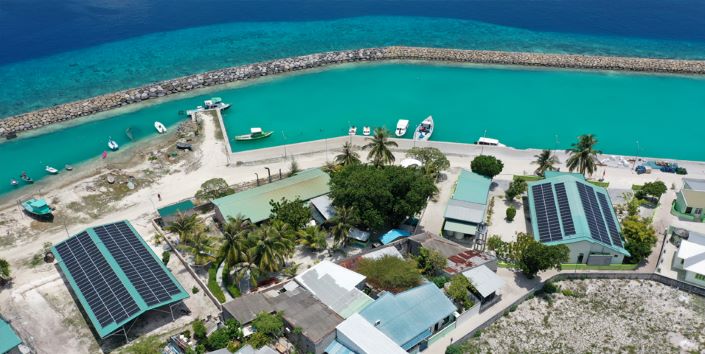The swift progress of Artificial Intelligence (AI) is set to transform economies worldwide, including in the Maldives. This has significant implications for jobs, productivity, and inequality. According to the International Monetary Fund (IMF), the ongoing technological revolution presents both vast opportunities and substantial challenges. The Maldives, with its distinctive economic and social landscape, must navigate these changes cautiously to ensure that the advantages of AI benefit all its citizens.
Impact of AI on Global and Maldivian Economies
Recent analysis by the IMF indicates that AI could impact almost 40% of jobs globally, a statistic that is both intriguing and worrisome. In the Maldives, heavily reliant on tourism and fishing, the integration of AI could revolutionize these sectors by improving efficiency and fostering innovation. However, there is also the risk of job displacement, particularly in roles that are routine and prone to automation.
For the Maldives, the challenge is twofold. First, there’s a need to integrate AI into the economy in a way that complements human labor, enhances productivity, and promotes economic growth. Second, the country must address the potential rise in inequality, both within its borders and compared to other nations. This is especially urgent given the IMF’s finding that advanced economies may have more opportunities to benefit from AI compared to emerging markets like the Maldives.
Transforming Work and Tackling Inequality
The impact of AI on work in the Maldives could be significant. With AI’s ability to complement human work, there’s potential for increased productivity in key sectors. However, the nation must also be cautious about AI potentially replacing jobs, especially in high-skilled areas. This could result in lower wages and reduced hiring, exacerbating income inequalities.
Being an emerging market, the Maldives faces the challenge of lacking the infrastructure or skilled workforce to fully leverage AI benefits. This gap could widen the inequality between the Maldives and more developed nations, emphasizing the need for the country to invest in digital infrastructure and education.
Strategies for an Inclusive AI Future in the Maldives
To ensure that AI benefits humanity, including the Maldivian context, a multi-pronged strategy is necessary:
Investment in Digital Infrastructure: Building robust digital infrastructure is crucial for the Maldives to adopt and benefit from AI technologies. This includes not only technological hardware but also the digital literacy of its population.
Education and Retraining: The Maldivian education system must evolve to prepare the workforce for an AI-driven world. This includes integrating AI and digital skills into curriculums and offering retraining programs for those whose jobs are at risk.
Creating a Regulatory Framework: The Maldives needs to develop regulations that govern the ethical use of AI, ensuring that AI development aligns with the country’s socio-economic goals and values.
Developing Comprehensive Social Safety Nets: As AI potentially displaces jobs, it’s essential to have social safety nets in place to support those affected, preventing an increase in inequality and social tensions.
Leveraging IMF’s AI Preparedness Index: By using tools like the IMF’s AI Preparedness Index, the Maldives can assess its readiness for AI integration and tailor policies accordingly.
As AI reshapes the global economy, the Maldives stands at a critical juncture. The country’s approach to integrating AI will determine not just its economic trajectory but also how its society evolves in the face of this technological revolution. By adopting thoughtful policies and investments, the Maldives can ensure that AI serves as a catalyst for inclusive growth and prosperity, benefiting all segments of its population.

